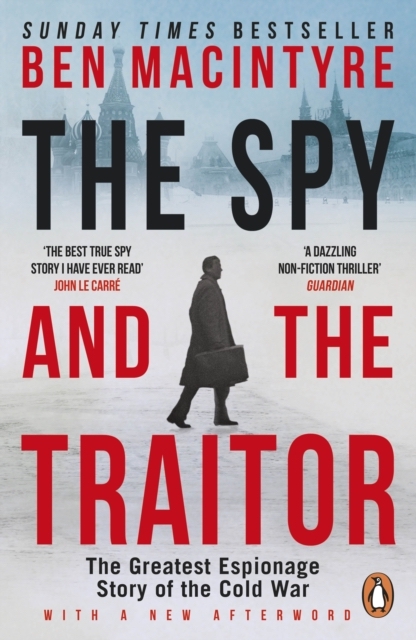
There he spent a few years in which he divorced his first wife and married Leila Aliyeva, daughter of KGB agents, who never knew of his double life and had two daughters.

In 1968 he lived in Copenhagen in the service of the KGB and experienced the contrast between democracies and the Soviet System, he also read prohibited works in the USSR and although he began working for Occident at that time, he had to return to Moscow in 1978. With the invasion of Czechoslovakia (1968) he became convinced that he served a pernicious system but precisely because of his privileged position in the KGB, he could do something to change things. During the invasion of Hungary (1954) he was hardly a teenager, but the analysis of what happened in Berlin in 1961, when, in the face of the Germans' desires for freedom, the Soviets responded with the construction of the wall in a few hours, made him very doubtful of the goodness of the communist regime. It is not known whether it was his fear of authority or his entrenched habit of submission or other things that led him to continue his work. But Gordievski was disappointed when he observed that the regime was not evolving and that the USSR had become a great prison. The KGB instructed him on the techniques and prepared him for espionage. Being highly intelligent, cold and ambitious, he was seduced by the perks and secrecy offered to him by the KGB that also promised him a good salary and travel abroad. Oleg, who was convinced of the goodness in the communist system, his family had always supported the system.

.jpg)
The author believes that Oleg Gordievski, who held a senior position in the KGB, by acting as a spy for British MI6, managed to prevent an atomic war from being unleashed in 1985 and also helped to accelerate the end of the Cold War. Ben Macintyre, who belonged to the MI6, is based on inside information and tries to offer an idea of the performance of this secret service, but his book focuses mainly on the story of Oleg Gordievski who lived at a constant risk of death and had to make very difficult decisions a man whose hatred for communism possibly influenced the future of humanity because, with his warnings to the British and American governments, he managed to change various political decisions he is the protagonist of this story with which Macintyre manages to impress. This story moves between fiction and history, as the author bases the story on real data and the reader knows the outcome from the beginning, but Macintyre conceives it as a thriller and achieves it because it maintains tension throughout the novel.



 0 kommentar(er)
0 kommentar(er)
